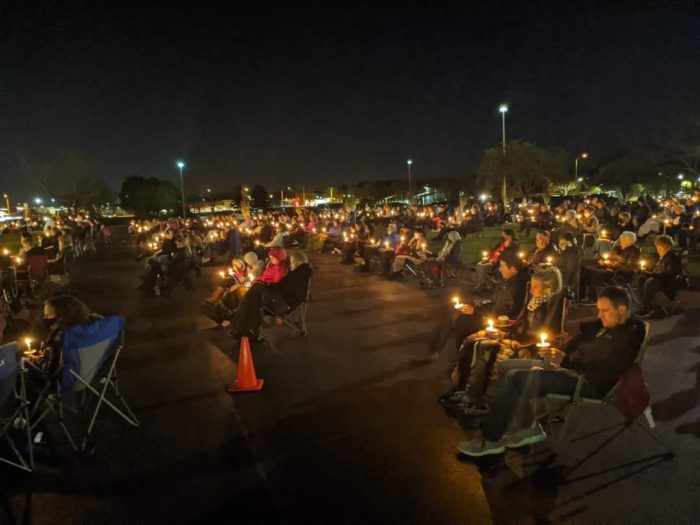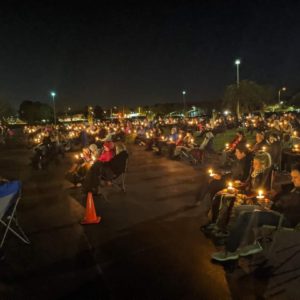
Yesterday marked election day, but Americans woke up this morning not knowing who they elected president… or what the balance of power is like in the Senate or (to a lesser extent) the House. Seemingly everyone is on edge today, since regardless of who you voted for, there’s a good chance that person lost. And it’s clearer than ever that the two halves of America don’t see eye-to-eye on some pretty basic questions. It’s easy to become overwhelmed with anxiety, or (as I’ve admittedly fallen into several times) to obsess over the minute details as the numbers roll in. But I think that’s not a spiritually-healthy approach, and I think most people actually know this.
Today, I thought it would be nice to share something unrelated to the election, but as I tried to understand what I should post, I was struck by Alexandr Solzhenitsyn’s 1978 Harvard Commencement. So I’ll warn you that what follows is sort of related to politics, but I think it’s the corrective we need today, because it puts politics (and social life more broadly) into its broader context.
If you’re not familiar with him, Solzhenitsyn lived in the Soviet Union, but was an outspoken critic of Stalin and the USSR, meaning that he was set to the Gulag. Looking back on the horrors that befell Russia in the twentieth century, Solzhenitsyn would later say:
More than half a century ago, while I was still a child, I recall hearing a number of older people offer the following explanation for the great disasters that had befallen Russia: “Men have forgotten God; that’s why all this has happened.”
What is more, the events of the Russian Revolution can only be understood now, at the end of the century, against the background of what has since occurred in the rest of the world. What emerges here is a process of universal significance. And if I were called upon to identify briefly the principal trait of the entire 20th century, here too, I would be unable to find anything more precise and pithy than to repeat once again: “Men have forgotten God.” The failings of human consciousness, deprived of its divine dimension, have been a determining factor in all the major crimes of this century.
Eventually, Solzhenitsyn was freed, and made it to the West. What he found in America was a country that, despite many advantages over the Soviet Union, was likewise facing a spiritual crisis of forgetting God. And so, in his address to the graduating students of Harvard in 1978, Solzhenitsyn began by reminding them of Harvard’s motto, Veritas (Truth), and then warned them of the spiritual crisis facing American democracy:
[In] early democracies, as in the American democracy at the time of its birth, all individual human rights were granted because man is God’s creature. That is, freedom was given to the individual conditionally, in the assumption of his constant religious responsibility. Such was the heritage of the preceding thousand years. Two hundred or even fifty years ago, it would have seemed quite impossible, in America, that an individual could be granted boundless freedom simply for the satisfaction of his instincts or whims. Subsequently, however, all such limitations were discarded everywhere in the West; a total liberation occurred from the moral heritage of Christian centuries with their great reserves of mercy and sacrifice. […] State systems were becoming increasingly and totally materialistic. The West ended up by truly enforcing human rights, sometimes even excessively, but man’s sense of responsibility to God and society grew dimmer and dimmer. In the past decades, the legalistically selfish aspect of Western approach and thinking has reached its final dimension and the world wound up in a harsh spiritual crisis and a political impasse. All the glorified technological achievements of Progress, including the conquest of outer space, do not redeem the 20th century’s moral poverty which no one could imagine even as late as in the 19th Century.
This prognosis is similar to Mother Teresa’s, who said, “the spiritual poverty of the Western World is much greater than the physical poverty of our people.” And as Solzhenitsyn saw, this spiritual poverty threatened to destroy the foundations of American democracy, since our democratic ideals are based on a belief in God-given rights. Ultimately, Solzhenitsyn declared, “Only voluntary, inspired self-restraint can raise man above the world stream of materialism.” And so he concluded his address with these words, which I think are no less true today than when he uttered them:
Social dogmatism leaves us completely helpless in front of the trials of our times. Even if we are spared destruction by war, our lives will have to change if we want to save life from self-destruction. We cannot avoid revising the fundamental definitions of human life and human society. Is it true that man is above everything? Is there no Superior Spirit above him? Is it right that man’s life and society’s activities have to be determined by material expansion in the first place? Is it permissible to promote such expansion to the detriment of our spiritual integrity?
If the world has not come to its end, it has approached a major turn in history, equal in importance to the turn from the Middle Ages to the Renaissance. It will exact from us a spiritual upsurge: We shall have to rise to a new height of vision, to a new level of life where our physical nature will not be cursed as in the Middle Ages, but, even more importantly, our spiritual being will not be trampled upon as in the Modern era.
This ascension will be similar to climbing onto the next anthropologic stage. No one on earth has any other way left but — upward.
There are good principles worth fighting for, but we can’t give up the peace of Christ in that fight. What should distinguish Christians (in particular) in the political realm is not that we run from a challenge in when it’s called for, but that we engage in the conflict without losing sight of who we and our political opponents are, as children of God.
Whatever the outcome of the election, we must never forget that America’s salvation won’t come from the Left or from the Right, but from Above. If that’s true, then perhaps the best we can spend today is not obsessively refreshing election results, but spending more time in genuine prayer before God.

Yes. Here in America we seem to be seeing a battle between the religion of secularism and what some have called “Christianism”. Unfortunately some Catholics have fallen into one or the other of those traps. I think it is very important we pay attention to Pope Francis.
Russia had indeed forgotten God, or her ruling classes had. Not for nothing did Ulyanov say, “communism can never triumph until the idea of God is removed from the minds of men.” Stalin was a divinity student, until he read Darwin. As for America, she was founded on Deism and “mystery religion”, which amounts to little more than Luciferianism in a new disguise. Of course it was the abuses and obscenities of Rome which made a mockery of Christ’s gospel and church and opened the door to Deism and all that has followed from it. The lack of response to this article speaks volumes, not only of ignorance of the past, but of the future. No one in Russia, except the architects of terror, expected the three or four generations of misery, death and spiritual oblivion that followed 1917, but the same forces have been at work in America for centuries now and their work is nearing its fulfillment. They make no secret of it, and they rightly laugh and sneer at those who have neither the intelligence to listen and understand nor the courage to face reality. Sic transit.